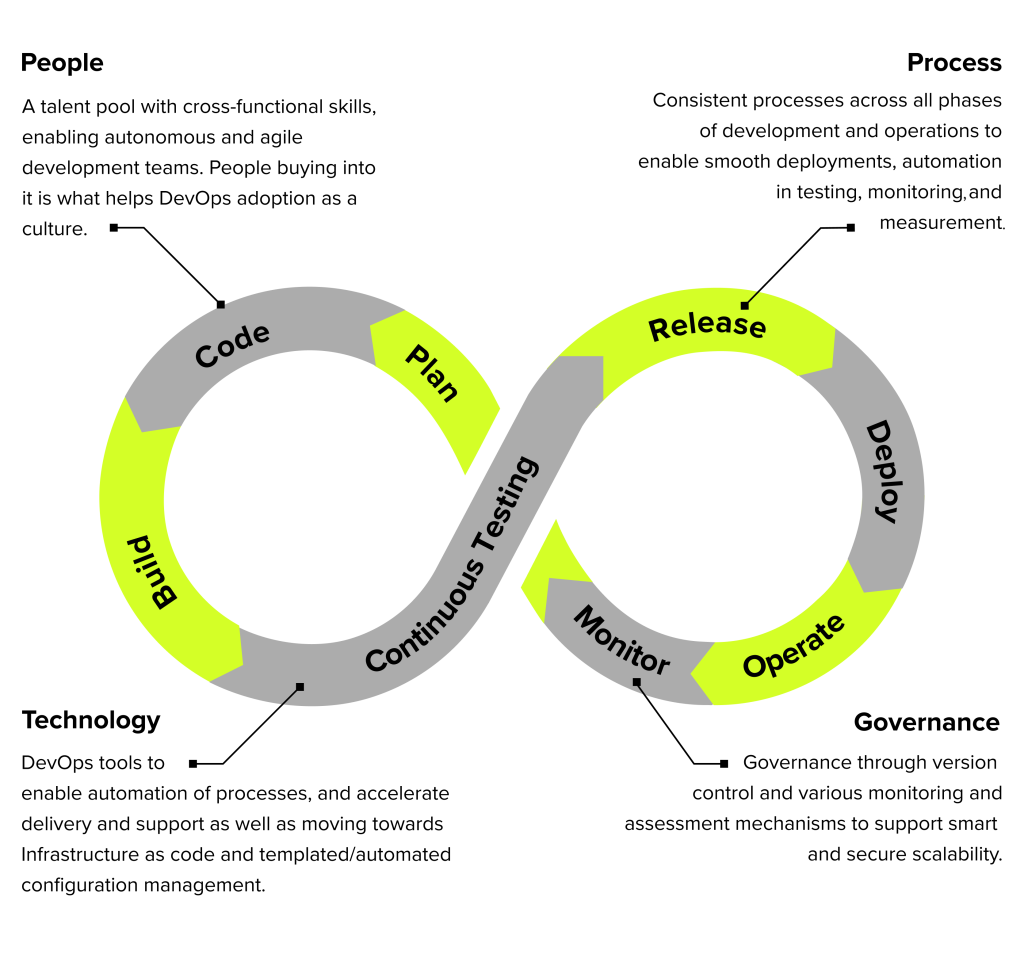

By 10Pearls editorial team
A global team of technologists, strategists, and creatives dedicated to delivering the forefront of innovation. Stay informed with our latest updates and trends in advanced technology, healthcare, fintech, and beyond. Discover insightful perspectives that shape the future of industries worldwide.
Why Hire an Outsourced Edtech App Developer?
The education sector has been notoriously slow to adopt new technology, but that’s changing fast, in no small part due to the COVID-19 pandemic temporarily forcing students off-campus. One survey found that educational technology usage in schools increased 99% between 2020 and 2022, and another report estimated that the global edtech market reached $142.37 billion USD in 2023.
Edtech applications make learning resources more engaging and accessible, which benefits students, teachers, and the for-profit education industry. Unfortunately, there’s a shortage of qualified developers with the specialized expertise to build and support advanced educational apps. Hiring an outsourced edtech developer gives companies access to these in-demand skills faster and more cost-effectively than traditional recruiting, so they can stay ahead of the competition using innovations like artificial intelligence (AI) and virtual reality (VR).
This guide explains everything you need to know about edtech app development and describes the advantages of working with a trusted outsourcing partner like 10Pearls.
What are edtech apps?
Edtech apps are software tools that aid the learning process in various ways. They’re typically designed for mobile devices like smartphones, tablets, and smartwatches, though “app” has become a catch-all term for any kind of software, including that used on desktops and laptops. Some edtech apps are developed by learning institutions, but many are created by for-profit educational technology companies.
Examples of edtech apps
Examples of edtech apps
| App type | Description | Examples |
| Learning management system (LMS) | Helps organizations manage and deliver digital educational content | Blackboard, Brightspace |
| Adaptive learning | Uses AI and machine learning to adapt educational content to an individual learner’s performance | SC Training, Adaptemy |
| Language learning | Helps individuals learn new languages with interactive resources | Duolingo, Babbel |
| Study aid | Provides tools like digital flashcards and practice quizzes to help students study | Study.com, Quizlet |
| Assessment and testing | Allows teachers to create, manage, and grade online tests | Kahoot!, ExamSoft |
| Augmented reality (AR) and virtual reality (VR) | Blends digital content with the physical environment to create a more immersive learning experience | Axon Park, Sandbox AR |
| Gamified learning | Uses gameplay elements like point systems and leaderboards to motivate students | ClassDojo, CritterCoin |
| Special needs / inclusive learning | Provides digital learning experiences tailored to students with special needs | SoundingBoard, SeeingAI |
The benefits of edtech apps
Edtech apps benefit learners and educators alike by:
- Increasing student engagement. Edtech apps provide a more interactive learning experience that captures students’ attention in a way that textbooks and lectures simply can’t. By encouraging students to engage with the material with games and other digital activities, edtech apps can improve learning outcomes and in-class participation.
- Providing personalized learning experiences. There are multiple paths to reach the same educational goals, and the best teachers meet students where they are. Adaptive learning technologies can adapt to the strengths and weaknesses of individual students to ensure each of them gets the support they need to succeed.
- Improving access to learning resources. Edtech apps help give students in isolated and underprivileged communities access to learning tools even when they can’t make it to the classroom, such as during a pandemic or natural disaster. They can also use capabilities like text-to-speech to make resources more accessible to students with disabilities.
- Facilitating collaboration. Educational technology helps students connect with their peers for group projects, cross-cultural communication experiences, and homework help. Educators can also use these apps to share resources and ideas with each other to improve their lessons or gain much-needed support.
- Reducing classroom expenses. Edtech apps can replace some of the costly physical equipment and materials that drive up classroom expenses, allowing institutions to redistribute that budget where it’s needed most. They can also reduce the reliance on expensive textbooks and streamline tedious tasks like grading to improve teacher productivity.

What’s involved in edtech app development?
Edtech app development works much the same way as any other software development project. The exact process will vary by company, team, and project, but a basic edtech app development cycle in a DevOps environment typically involves eight stages:

| Plan |
Determining the app’s technical requirements, conducting market research, and outlining exactly how to execute the project.
|
| Code |
Writing the software code for all the individual components of the edtech app.
|
| Build |
Integrating all the individual code components into a cohesive project.
|
| Test |
Validating that every aspect of the software functions as expected and performs according to established benchmarks.
|
| Release |
Checking over the final product and ensuring all systems and teams are ready for production.
|
| Deploy |
Pushing the app live and ensuring everything functions in a production environment.
|
| Operate |
Supporting the app while it’s actively used.
|
| Monitor |
Collecting user feedback and monitoring data to help mitigate problems and improve features in future releases.
|
Why hire an outsourced edtech app developer?
Developing an edtech app involves many different stages, workflows, and specialized skills. In the U.S. and U.K., qualified edtech developers are in short supply and high demand. Even large, established tech companies have to grapple with extremely long recruitment cycles, and it’s much harder for smaller organizations and startups to compete. Hiring difficulties can delay project starts and increase development costs, and there’s no guarantee that a full-time hire will stick around to see the app through to completion.
Outsourcing to an edtech app developer can help by:
- Providing fast access to the specific talent you need for your project, significantly shortening hiring cycles and accelerating project execution.
- Cost saving on developer salaries and recruitment process while improving project ROI by getting quality software out the door faster.
- Improving agility and scalability by ensuring you always have access to the resources you need to pivot or grow along with customer demand.
Outsourcing has its risks, though, especially if you hire freelancers. Outsourced developers may not speak English fluently or easily adapt to your team’s processes or communication styles, and independent contractors could be less committed to your app’s success. Navigating the pros and cons of outsourcing software development is easier if you work with a trusted partner like 10Pearls.
The 10Pearls approach to edtech app development
10Pearls is a technology consulting firm with extensive experience in the education industry. We take a streamlined, agile approach to edtech app development, allowing us to deliver exceptional results no matter how tight the budget or release schedule.
- Strategy and ideation: We work closely with your organization to understand your pain points, project requirements, and business goals. Our experts perform market research and competitor analysis, which allows us to ideate an edtech app that speaks to your intended audience and stands out from the competition.
- User interface and user experience (UI/UX) design: We combine traditional techniques with innovative technologies to craft intuitive user experiences. From wireframing and customer journey mapping to stakeholder alignment and performance optimization, our UI/UX experts work tirelessly to ensure your edtech app is functional and engaging.
- Development and testing: Our edtech app developers use agile and DevOps best practices, such as iterative coding sprints and CI/CD, to deliver flawless code in less time. We continuously validate our code’s functionality, performance, and security to ensure the finished product exceeds your expectations.
- Launch and support: Our relationship continues through release day and beyond to ensure you get the support needed for a successful launch. We can also continuously monitor app performance and user feedback to recommend improvements and develop new features, supporting you for the lifetime of your app.
Read our case study to learn how we designed and built an engaging edtech app for students and teachers to foster geography education.







